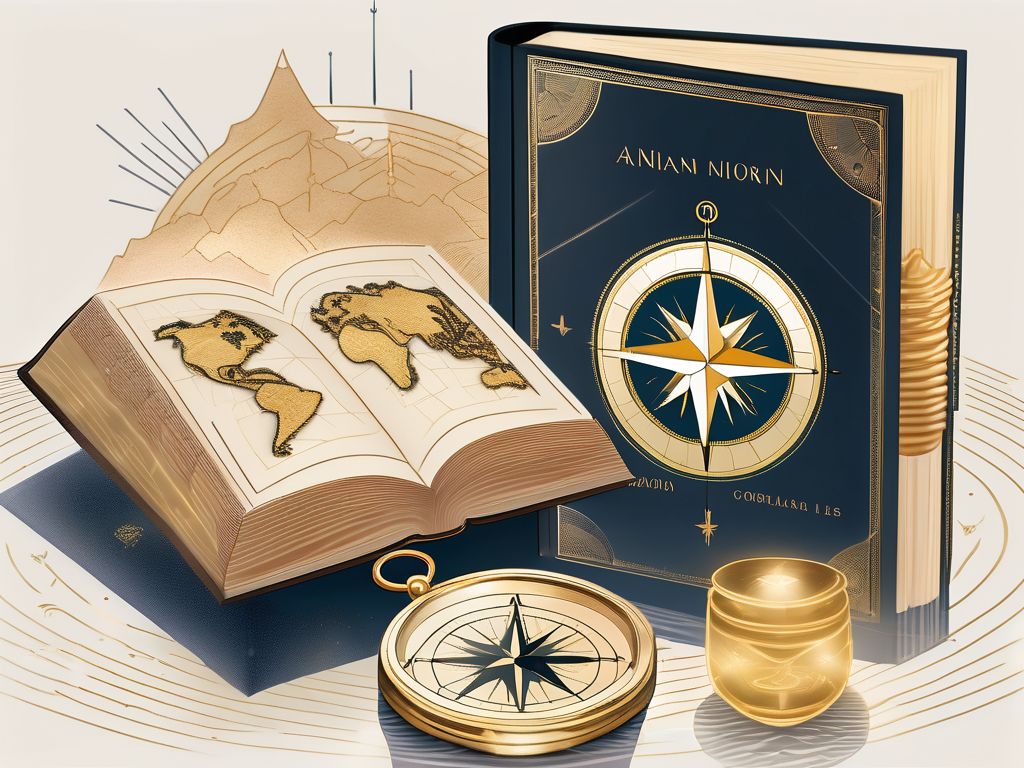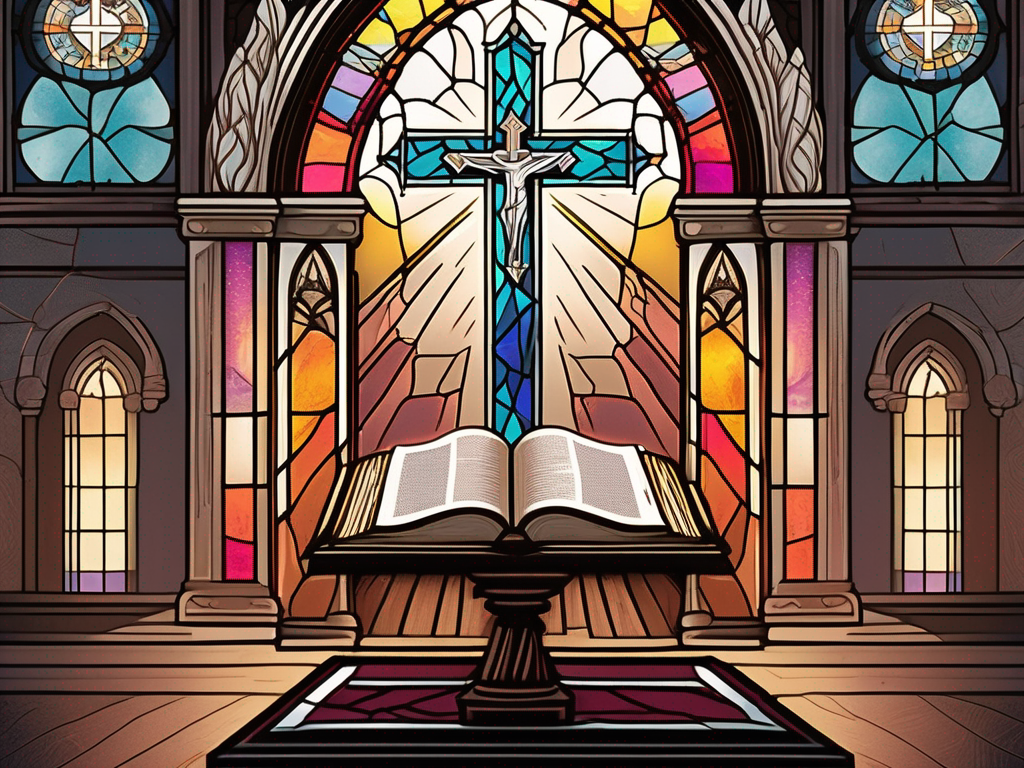In Christian theology, the origins of the universe are a subject of great interest and debate. Different interpretations of religious texts and scientific discoveries have led to diverse beliefs within the Christian community. In this article, we will delve into the various creation theories embraced by Christians and explore their implications on faith and practice.
Understanding Christian Creation Beliefs
Christian creation beliefs are an essential aspect of the faith, providing answers to fundamental questions about the origins of the universe and humanity. One of the most well-known accounts of creation is found in the book of Genesis in the Bible. However, interpretations of this account vary among Christians.
The Genesis Account: A Literal Interpretation
Many Christians adhere to a literal interpretation of the Genesis account, believing that God created the universe and everything in it in six literal days. According to this view, the world is relatively young, with an age of around six to ten thousand years. This perspective emphasizes the divine power and intention behind creation.
When taking a literal interpretation of the Genesis account, believers find comfort in the idea that God’s creation was deliberate and purposeful. They see the six days as a clear indication of God’s ability to create everything in a short span of time. This perspective also highlights the importance of the Sabbath, as God rested on the seventh day after completing His work. It serves as a reminder for Christians to rest and reflect on God’s creation.
Furthermore, those who hold a literal interpretation often find themselves engaged in discussions surrounding the age of the Earth. They explore scientific evidence, such as geological formations or fossil records, to support their belief in a young Earth. These discussions can lead to a deeper understanding of the intricacies of creation and the compatibility between faith and science.
The Genesis Account: A Metaphorical Interpretation
On the other hand, some Christians interpret the creation account in Genesis metaphorically. They see the six days as symbolic representations of vast periods of time, allowing for compatibility between scientific discoveries, such as the age of the universe and the theory of evolution, and their faith. This perspective emphasizes the overarching themes of God’s creativity and intention rather than the literal timeline.
When approaching the Genesis account metaphorically, believers appreciate the poetic nature of the text. They recognize that the ancient Hebrew culture often used symbolism and metaphor to convey deeper truths. This perspective allows Christians to explore the wonders of creation through the lens of science without compromising their faith.
Metaphorical interpretations also open up discussions about the relationship between God and His creation. It invites believers to reflect on the idea that God’s creative work is ongoing and not confined to a specific timeframe. This perspective encourages Christians to appreciate the beauty and complexity of the natural world, seeing it as a testament to God’s ongoing creative power.
Additionally, Christians who interpret the Genesis account metaphorically often engage in conversations about the role of humanity in God’s creation. They explore the concept of stewardship, understanding that as caretakers of the Earth, they have a responsibility to protect and preserve the environment. This perspective fosters a sense of environmental awareness and encourages believers to take an active role in caring for God’s creation.
The Role of God in Christian Creation Theories
Regardless of the interpretation of the creation account, Christians generally agree that God plays a central role in the process of creation. The belief in God’s involvement in the origins of the universe is foundational to their faith.
But what does it mean for God to be the creator? How is this belief supported by biblical references? And what is the theological perspective on God’s purpose in creation? Let’s delve deeper into these questions.
God as the Creator: Biblical References
The Bible repeatedly emphasizes God’s role as the creator of the universe. In the book of Genesis, we read about God speaking the world into existence, bringing order out of chaos, and forming humankind in His image. These passages serve as a basis for Christian belief in God as the ultimate creator.
But the concept of God as the creator goes beyond just the act of creation. It also encompasses the sustaining and governing of the universe. In the Psalms, we find poetic descriptions of God’s ongoing involvement in upholding the natural order and providing for His creation.
Furthermore, the New Testament expands on the idea of God as the creator, highlighting the role of Jesus Christ in creation. The apostle Paul, in his letter to the Colossians, asserts that “in [Christ] all things were created: things in heaven and on earth, visible and invisible” (Colossians 1:16). This understanding deepens the Christian belief in God’s active presence in the world.
God’s Purpose in Creation: Theological Perspectives
Christian theologians have long pondered the purpose behind God’s act of creation. Many believe that God created the universe out of love and with a specific plan in mind. They argue that the complexity and beauty of the natural world reflect God’s glory and provide a space for humans to know and worship Him.
Moreover, theologians also explore the idea that creation serves as a stage for the unfolding of God’s redemptive plan. They see the story of creation as intricately connected to the story of salvation, with God’s ultimate purpose being the restoration of all things through Jesus Christ.
Additionally, some theologians emphasize the concept of stewardship in relation to God’s purpose in creation. They believe that humans are called to responsibly care for and cultivate the earth, recognizing that it is a gift from God. This perspective highlights the importance of environmental stewardship and sustainable practices.
In conclusion, the role of God in Christian creation theories is multifaceted. It encompasses God as the creator, sustainer, and governor of the universe, as well as the purpose behind His act of creation. The belief in God’s involvement in the origins of the universe is not only supported by biblical references but also explored through theological perspectives. Understanding and reflecting on these aspects deepen the Christian faith and inspire a sense of awe and wonder at the intricate workings of the world around us.
The Intersection of Science and Religion in Christian Creation Beliefs
Christian creation beliefs often intersect with scientific understandings of the universe. While some may perceive science and religion as incompatible, there are Christians who find harmony between the two.
When exploring the relationship between science and religion in Christian creation beliefs, it is important to consider the different perspectives on key scientific theories such as the Big Bang and evolution.
The Big Bang Theory and Christian Beliefs
Many Christians find no conflict between the Big Bang theory, which proposes that the universe started from a singular event, and their faith. They view the Big Bang as the scientific explanation for the moment of creation, while still affirming that God initiated and sustains the process.
For these Christians, the Big Bang theory aligns with the biblical concept of God as the ultimate creator. They see the scientific understanding of the universe’s origin as complementary to their religious beliefs, providing a deeper appreciation for the intricacies of God’s creation.
Furthermore, some Christians see the Big Bang as evidence of God’s existence and power. They argue that the precise conditions required for the Big Bang to occur suggest a deliberate act of creation by an intelligent being. This perspective allows them to embrace scientific discoveries while maintaining their religious convictions.
Evolution and Christian Perspectives
The theory of evolution is a topic of much debate among Christians. Some embrace the idea, interpreting it as God’s method of creation, allowing for the development of various species over time. They view evolution as a natural process guided by God, where species adapt and change in response to their environments.
These Christians argue that evolution does not undermine their faith but rather enhances their understanding of God’s creative power. They see the intricate web of life and the interconnectedness of species as evidence of a divine plan.
On the other hand, there are Christians who reject evolution, advocating for special creation and the belief that each species was individually formed by God. They argue that the biblical account of creation should be taken literally and that any interpretation of evolution contradicts the teachings of the Bible.
For these Christians, the rejection of evolution is rooted in their understanding of the Bible as the infallible word of God. They believe that accepting evolution compromises the integrity of their faith and undermines the concept of a divine creator.
Despite the differing perspectives on evolution, it is important to note that Christians who hold these views often engage in respectful dialogue and seek common ground. They recognize that the intersection of science and religion is complex and that sincere believers can interpret scientific theories in various ways while remaining faithful to their Christian beliefs.
Overall, the relationship between science and religion in Christian creation beliefs is multifaceted. While some Christians find harmony between scientific theories such as the Big Bang and evolution, others hold different interpretations that align with their religious convictions. The exploration of these intersections continues to be a topic of discussion and reflection within the Christian community.
Debates and Controversies Surrounding Christian Creation Theories
Within the Christian community, there are ongoing debates and controversies regarding different creation theories. These discussions highlight the diversity of beliefs and interpretations among believers.
As the debates continue, one of the prevalent arguments centers around the contrasting views of young earth creationism and old earth creationism. Young earth creationists firmly adhere to a literal interpretation of the Genesis account and argue for a relatively young age of the earth. They believe that the earth was created by God in six literal days, as described in the Bible. This perspective often leads to debates about the scientific evidence that supports an older universe.
On the other hand, old earth creationists embrace scientific evidence for an older universe while still affirming God as the creator. They believe that the six days of creation described in the Bible may not be literal 24-hour periods but rather represent longer periods of time. Old earth creationists find harmony between scientific discoveries, such as the age of the universe and the fossil record, and their faith in God as the ultimate creator.
Young Earth Creationism: A Literal Interpretation
Young earth creationism is deeply rooted in a literal interpretation of the Genesis account. Advocates argue that the genealogies and timelines mentioned in the Bible provide a clear framework for calculating the age of the earth. They believe that the earth is only a few thousand years old, and any scientific evidence suggesting otherwise is either misinterpreted or flawed.
Supporters of young earth creationism often point to various biblical passages to reinforce their beliefs. They argue that the genealogies mentioned in the Bible, such as those in the book of Genesis, provide a chronological account of human history, leading to a relatively young age of the earth. Additionally, they emphasize the importance of faith in accepting the literal interpretation of the Bible, as it is the inspired word of God.
Old Earth Creationism: Harmonizing Science and Faith
Old earth creationism takes a different approach, seeking to harmonize scientific discoveries with religious beliefs. Advocates argue that scientific evidence, such as radiometric dating and geological formations, supports an older age of the earth and the universe. They believe that God’s creation process may have occurred over extended periods, allowing for the development of complex life forms.
Old earth creationists often emphasize the compatibility of faith and reason. They argue that God’s creation can be understood through scientific exploration and that scientific discoveries do not contradict the existence of a divine creator. They believe that God’s handiwork is evident in the intricate design and complexity found in the natural world.
Intelligent Design: A Middle Ground?
Intelligent design is another perspective that has gained attention in recent years. It suggests that certain features of the universe and living organisms exhibit characteristics of design, implying the presence of an intelligent creator. While intelligent design is often associated with Christianity, it also attracts support from individuals of various religious backgrounds.
Proponents of intelligent design argue that the complexity and intricacy of biological systems, such as the human eye or the structure of DNA, cannot be adequately explained by natural processes alone. They propose that an intelligent agent, often referred to as the “designer,” played a role in shaping and creating life as we know it.
However, intelligent design is not without its critics. Many scientists and skeptics argue that it is a form of “creationism in disguise” and lacks scientific evidence to support its claims. They assert that intelligent design does not meet the criteria of a scientific theory as it does not provide testable hypotheses or make predictions that can be empirically verified.
Despite the controversies and debates surrounding Christian creation theories, these discussions reflect the ongoing pursuit of understanding the origins of the universe and humanity. They highlight the complexity of faith and the diverse interpretations within the Christian community.
The Impact of Christian Creation Beliefs on Faith and Practice
Christian creation beliefs go beyond theoretical debates. They have profound implications on how believers view the world and engage in various aspects of their faith and practice.
Creation Beliefs and Christian Worship
For many Christians, their understanding of creation impacts their worship. Recognizing God as the creator influences how they praise and honor Him for His majestic work. Creation is often celebrated in hymns, prayers, and liturgies, emphasizing the awe and wonder inspired by the natural world.
Creation Theories and Ethical Implications
Christian creation beliefs also influence ethical considerations. Some believers argue that recognizing God’s sovereignty in creation calls for responsible stewardship of the environment and all living beings. They view ecological issues, conservation efforts, and ethical treatment of animals as interconnected with their understanding of creation.
In conclusion, there is a rich tapestry of Christian beliefs about the origins of the universe. From literal interpretations to metaphorical understandings, Christians have diverse views that interact with scientific discoveries. These beliefs shape their understanding of God, their relationship with the natural world, and their expressions of faith. By exploring these creation theories, believers seek a deeper understanding of the wonders of the world and the mysteries of God’s creative power.












